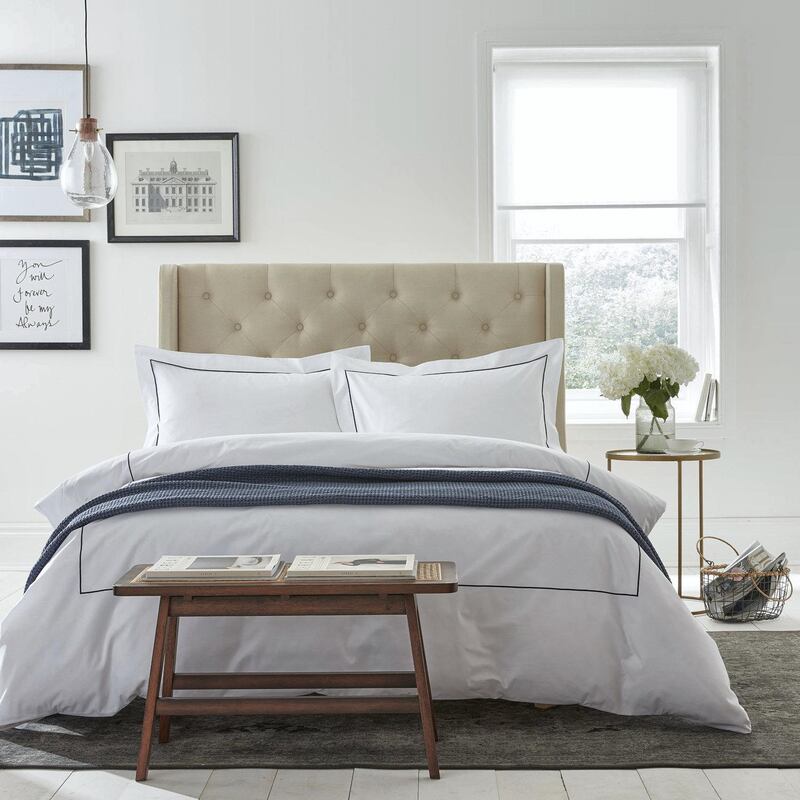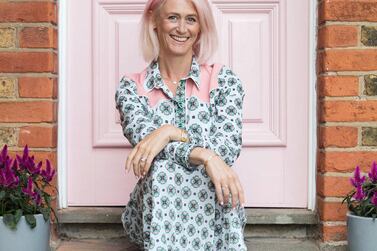Self-care is a subject we've become much more familiar with over recent years. We're starting to understand that it's not just our physical health we need to look after, but our emotional and mental well-being, too. True self-care isn't about frivolous activities. As journalist and author Brianna Wiest noted in a Facebook post for the arts and humanities group Nepenthe: "[It's] not salt baths and chocolate cake; it is making the choice to build a life you don't need to regularly escape from."
That could mean being disciplined enough to get yourself to the gym no matter how tiring your day. It could mean ditching a toxic relationship. It could be going to the dentist, organising your finances, making time to sit quietly or to go for a walk.
Your home plays a big part in your self-care plans. It's the environment you spend most of your relaxation time in – and for some, your work time, too. It's where you go to sleep and wake up, where you prepare food, spend time with family and loved ones. It's your space, and therefore has a profound impact on your well-being, or lack thereof. Here are some ways in which you can create a home that soothes and nurtures.
Build your social capital
This phrase refers to the positive outcomes of human beings interacting well together and has been shown to relate to how happy people in social groups and societies are. In other words, investing in relationships can improve your well-being. So make your home a welcoming space, invite friends for dinner and get a guest bed for the spare room and have people over to stay.
Tackle the stress points
Is there a rug you keep tripping on as you walk across your living room? A crack in the plasterwork in your bedroom that bugs you as you lie in bed at night? A dripping tap in your bathroom that you've been meaning to get fixed for ages? Do it. These might not seem like big things, but often it's the persistent worries and nagging frustrations that grind us down. Make time to fix these stress points so they don't add to your mental load.
Get outdoors
We're all aware of the dangers of sunburn and heatstroke in the UAE, but too little sun isn't good for you, either. Not only does sunlight help our bodies produce vitamin D, which can tackle a low mood and anxiety, but being outside during daylight hours also helps your body slot in with the natural rhythms of day and night, allowing you to produce melanin, which helps to block processes that lead to skin cancer, when you're ready to go to sleep. So make sure you give as much attention to your outdoor spaces as you do to your interiors – even if you only have a little balcony with a comfy outdoor chair where you can sit for half an hour and read a book or enjoy a coffee.
Protect your sleep space
Make sure your bedroom is designed to help you get the best night's rest. This means removing all gadgets and anything that emits blue light, which gets in the way of your body producing that sleep-inducing natural hormone, melatonin. Clearing clutter can also help you feel more restful, as can decorating the space in calm, soft colours – bright red walls aren't going to help you drift off. Invest in good-quality bed linen and try a weighted blanket, which helps some people fall asleep more easily.
Make exercise easy
Our physical and emotional well-being are closely linked, so if you’re not getting enough exercise it can eventually make you feel quite low. If getting to the gym regularly is a struggle, consider dedicating some space in your home to exercise. You could invest in a static bike or rowing machine, or just find a spot to lay out a yoga mat and do some sun salutations each morning.

Get organised
Many of the things that cause us stress are small issues, from skipping a dental appointment and missing the deadline on a supermarket coupon to realising your passport is about to run out just before an important work trip. However, these can easily be avoided. Getting organised is a wider lifestyle change, but your home can support this. Whether you hang a wall planner or pinboard in your hallway and use it as a way to remember important things, or buy a box file so you can organise your paperwork, find a system that helps you tackle your particular challenges – and stick to it.
Create a green space
The word biophilia refers to our natural affinity with plants and nature. You may live in a built-up city, but that doesn't mean you can't bring nature into your home. Plants are the obvious choice and you don't need many. You need not even be especially green-fingered, just choose hardy species such as bamboo and indoor palms that don't need much upkeep. And if you only have space for one or two, make sure they're plants like calathea and peace lilies, which are particularly good at cleansing the air of toxins.

Look after the planet
Our values shape who we are and being true to them is part of looking after our emotional health. There are many ways your house can help you do this. For example, if you've chosen to eat a plant-based diet, you might want to consider using vegan paint when you're decorating. These are free from casein (a type of milk protein) and beeswax, which are used as binding agents in many regular paints, and avoid ingredients that have been tested on animals. The same goes for plastic and cleaning products loaded with chemicals.
Get creative
All of us are creative in some way, even if we can’t paint, or write music or fiction. Being inventive brings us joy and can help us enter a flow state, which is relaxing and a great well-being boost. Have a think about what makes you feel like this and then create space in your home for this activity. If you love cooking, invest in making your kitchen a happy place to prepare meals. If getting your hands covered in soil gives you joy, fill your home with plants or grow herbs on your windowsill – whatever makes you smile when you walk through the door.






